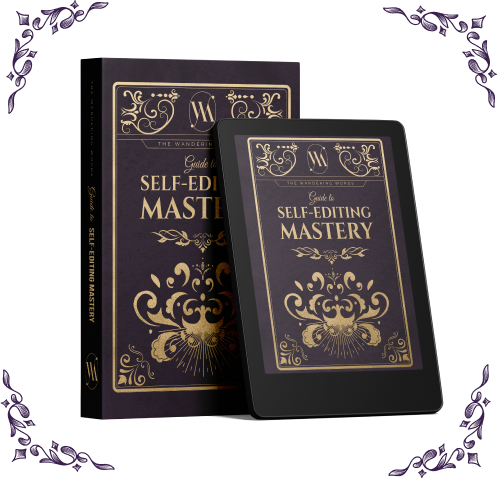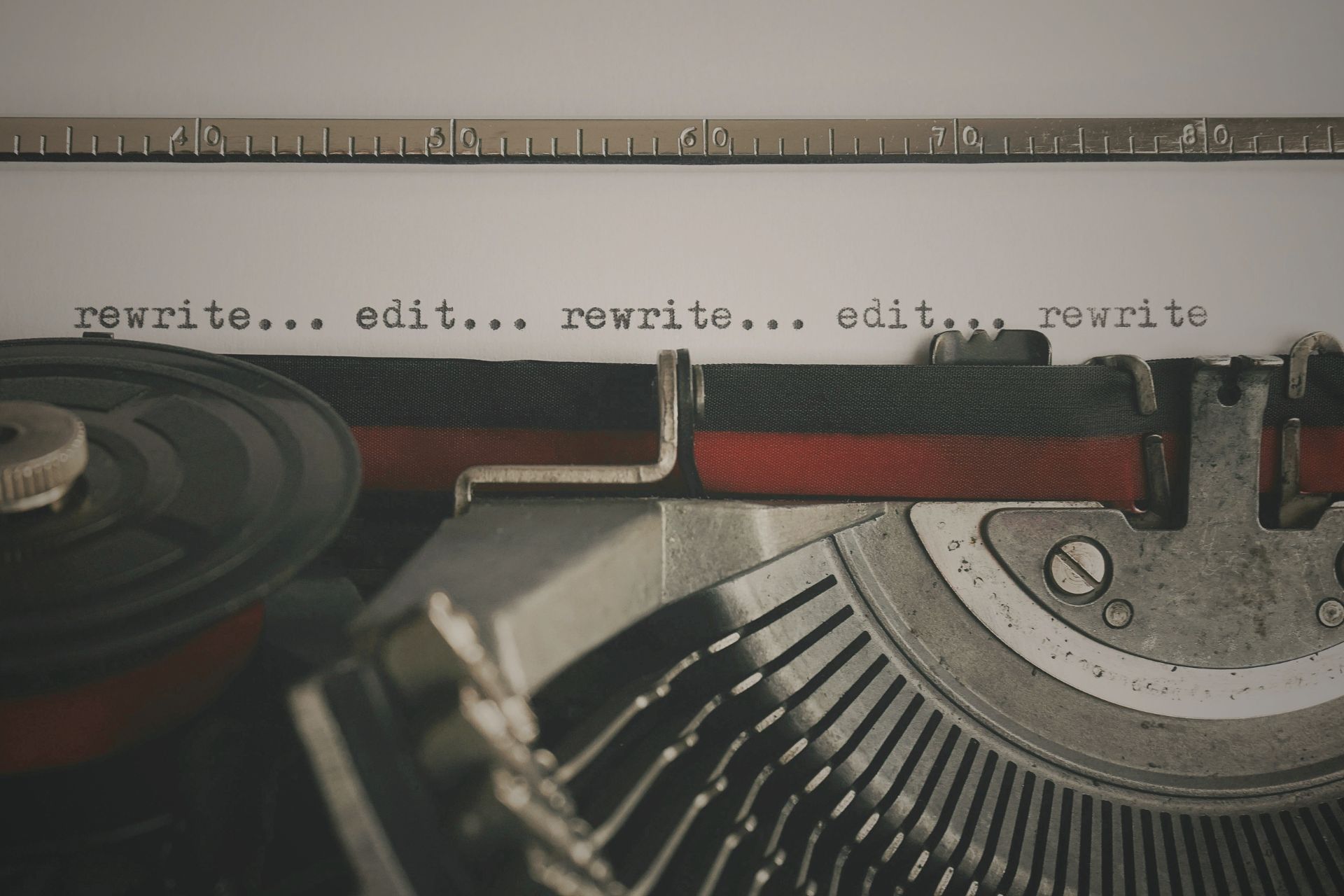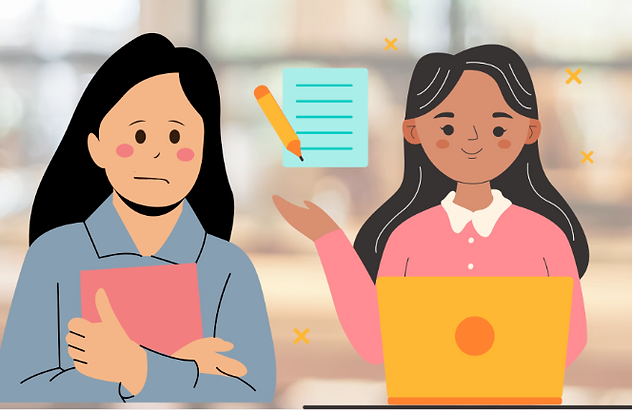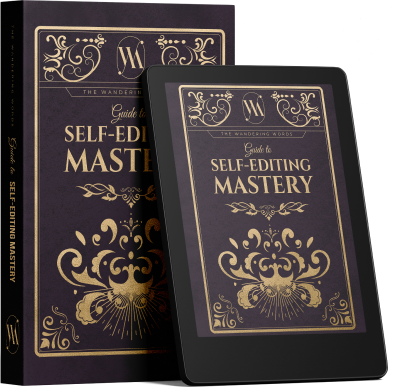Our Guide to Self-Editing Mastery has helped thousands of authors just like you:
- Pre-edit their books with ease
- Avoid the most common writing errors
- Quickly identify spelling & grammar mistakes
- Be more prepared for professional editing
Our Guide to Self-Editing Mastery has helped thousands of authors just like you:


Of course, we writers know that finishing a first draft is just the beginning...but when is the book "really finished?"
It can be hard to know when to put down the pen. For writers, it can seem like perfection is always just a few keystrokes away. But if we keep self-editing and re-self-editing our own work, we can keep self-editing forever. And ever. And ever.
So, without a clear finish line, how can we know when our book is ready to be sent to an editor? Is it the second draft? The fourth? The eighteenth?

Well, it's different for every author, and it's different for every book. But I do have some advice. First off...
Don't let "perfect" be the enemy of "good enough." I know, I know...as a recovering perfectionist, I know just how much "good enough" can sound like "giving up." But trust me, perfect is impossible. At a certain point, you have to stop chipping away at the sculpture...or else, you might just run out of marble.
Don't shoot for 100 percent quality. Shoot for 80 percent quality. Nobody except you knows what the perfect 100 percent version of your book looks like. They only see what's on the page. Here's a good video explaining this concept from author Hank Green.
On the other hand, good writing takes time, and it has a schedule all of its own. Some people take years to write books, and even longer to edit them on their own before sending it to professionals--and that's okay. Quality takes time. Take your time.
Unless you're contractually obligated to meet a deadline. Then, well...you have to meet that deadline.
How do you know if you've done enough? If you haven't read your book through--front to back, like a reader would--at least once (preferably, many, many more times than once), well, you're not done. Keep working. Believe it or not, finishing the first draft is the easiest part of writing a book.
So, those were two completely contradictory pieces of advice, right? Don't work too hard, but also do work hard, but don't waste time shooting for perfection, but the best things take time...what the heck are we supposed to do with that? Well, writing is an art. There is no one right answer. Sorry, friends. Every book is different and every author is different...but don't fret. I do have more advice for you.
Here's something I use in my own writing: if I read through the whole book, front to back, and I only change about 10 percent or less of the content, that means I need to stop working on it for the time being.
This could mean it's time for me to take a break for a few weeks, then look at it again with fresh eyes (it's ridiculous how well this method works).
This could also mean it's ready for another person to take a look at it.
"Another person" could refer to a friend, a beta reader, or an editor.
A friend is probably available for free, but hey...you get what you pay for. I once waited for weeks for a friend to read my book, and all they said was "It was good. I liked it. You missed a comma on page 67."
Not very helpful.
Some friends are extremely helpful, however--if you have a friend who reads a lot, who majored in English/Literature, or even who is really into film, they might have some great ideas. It's worth a try.
Nonfiction authors--experts in your field are okay, and they'll help you with accuracy, but they probably won't be very helpful for the writing aspect. They definitely won't be helpful if you're trying to write for the layperson, since they won't know what the Average Joe doesn't know. Sure, let them read it, but just know that this is not as good for your book as someone who is experienced in writing would be.
No matter what your friends do, THANK THEM. This is a big request, so even if they don't give good advice (or don't even finish reading it...this is more common that you'd think), let them know that you are grateful for their time. Offer to read their work, if they are writers--or take them out to dinner, or something.
A beta reader is someone you can read more about here: https://www.wanderingwordsmedia.com/beta-reading
And an editor...well, you've come to the right place 🙂
Okay. Here's a question for you: do you have specific things that you know you need to change? Like, "I know Chapter Three needs reworking. I know I need to fix Sally's character arc. I know I have to find more credible evidence to back up my claim. I know Chapters 5 and 8 are too repetitive, and I want to combine them into one chapter." If so, make those changes before giving it over to an editor. Otherwise, you'll be paying the editor to (in part) tell you what you already know you need to do.
On the other hand, are you not sure what you need to change? Do you just open up the document and poke around, adjusting a word here and there, overthinking sections you've rewritten a dozen times? In that case, bingo: you're ready for an editor.
Shoot me an email, and we can talk more about it. I'd be happy to set up a sample edit or discuss options with you based on your own unique circumstances.
At Wandering Words Media, we get books at every stage of the process, so even if you're not-so-sure or are completely lost in the weeds or just know it's a total mess but don't know what to do to fix it, no worries. I know we can make it sparkle.
Best of luck and happy writing!
~Christina

